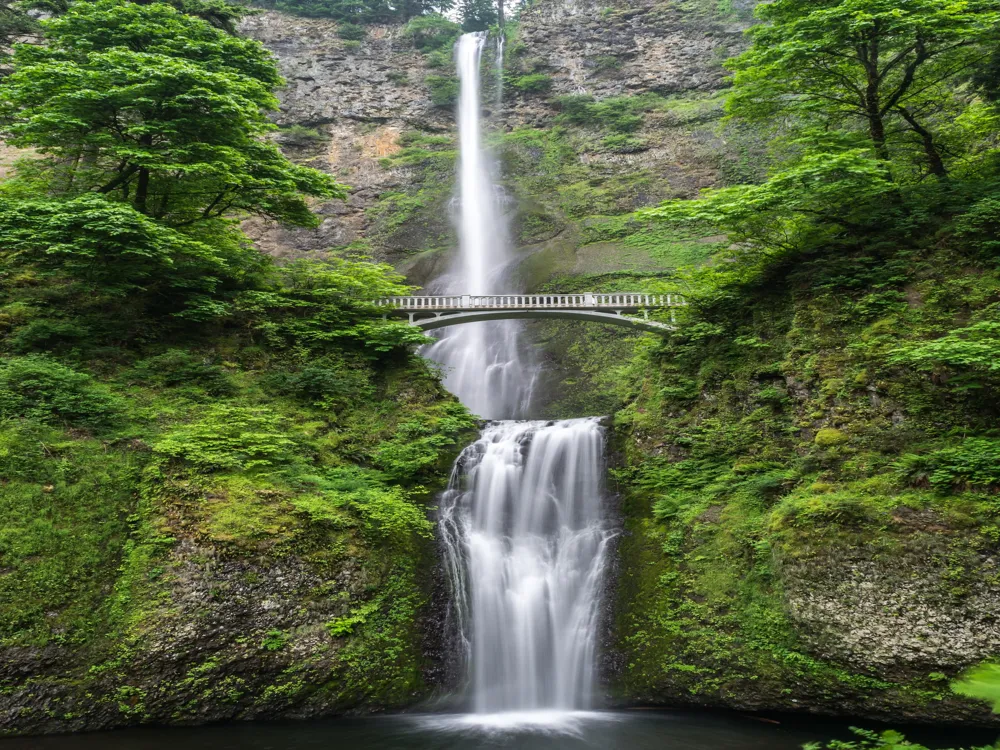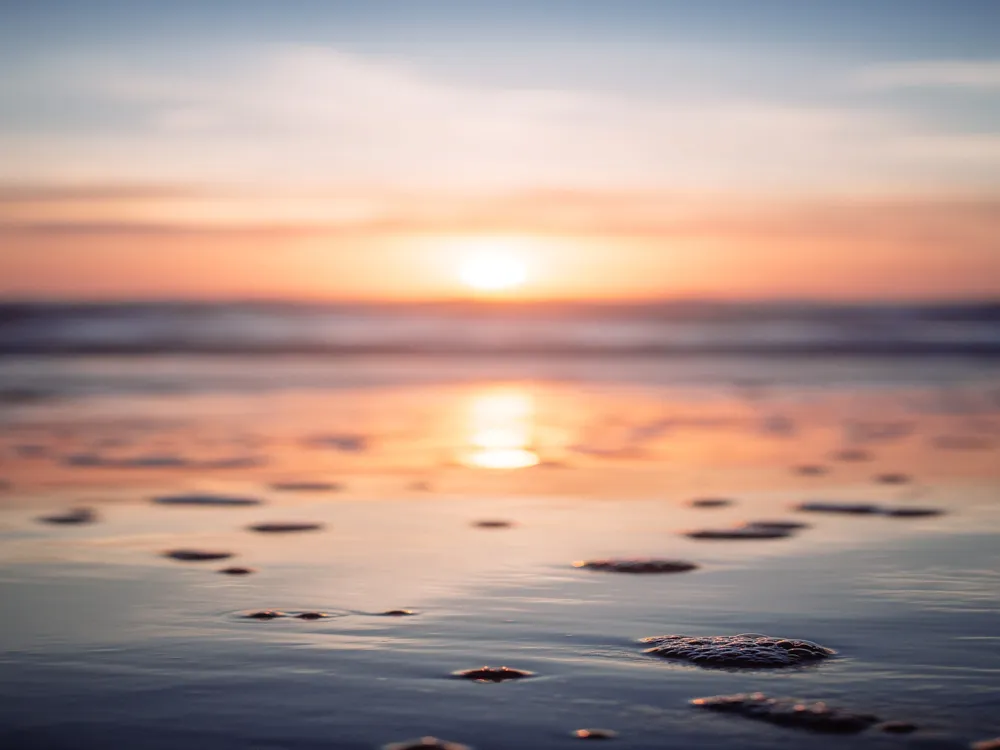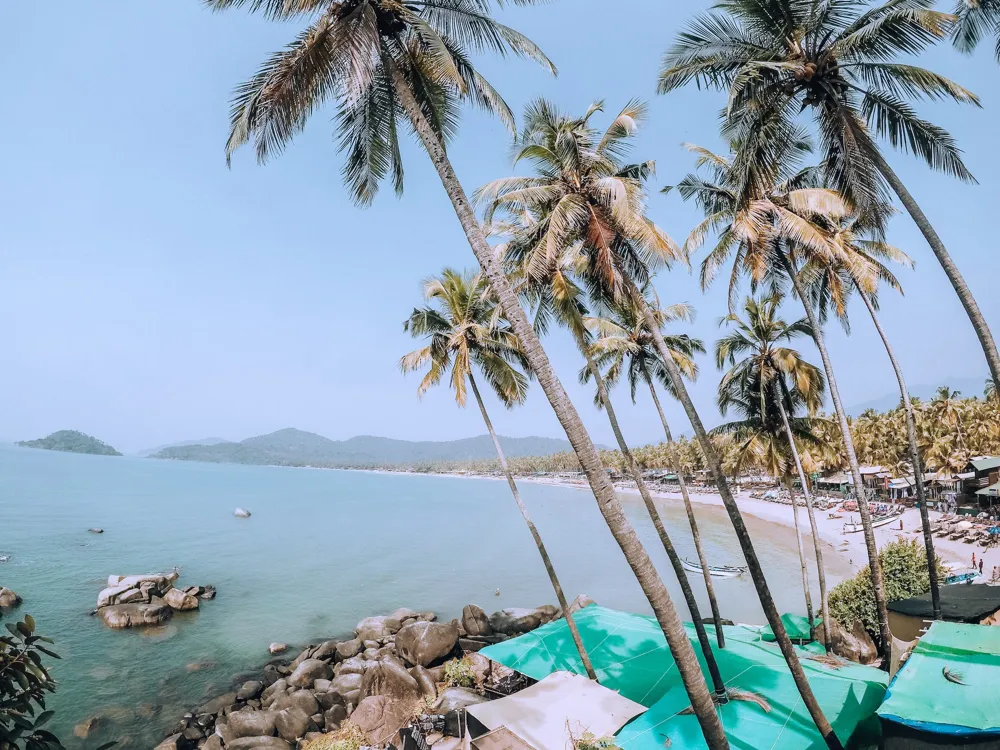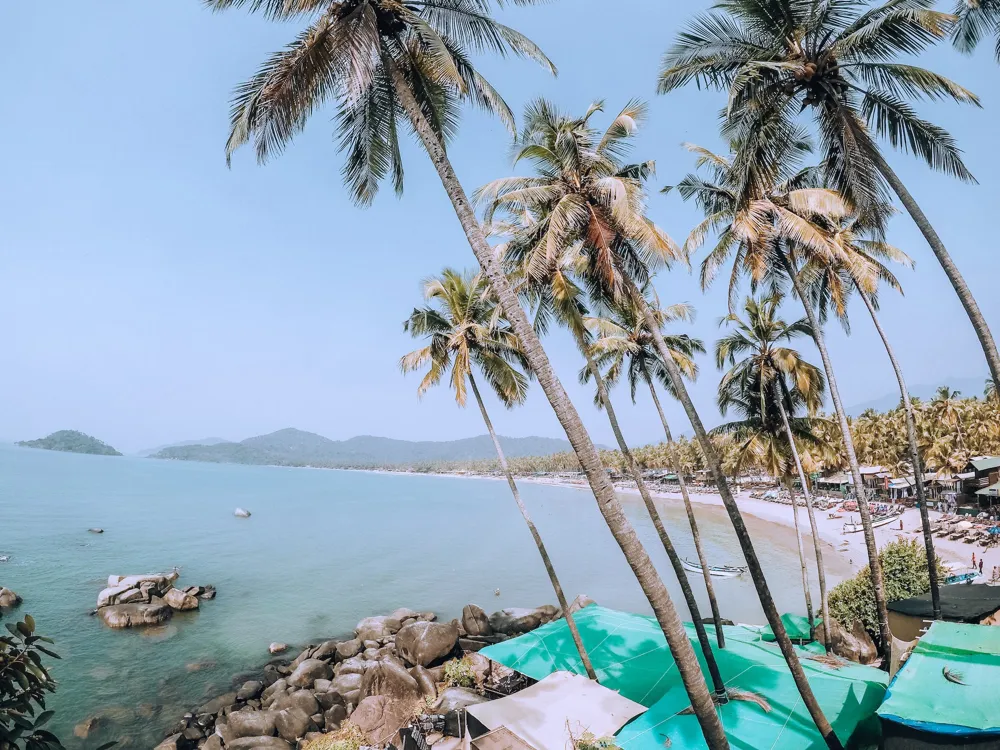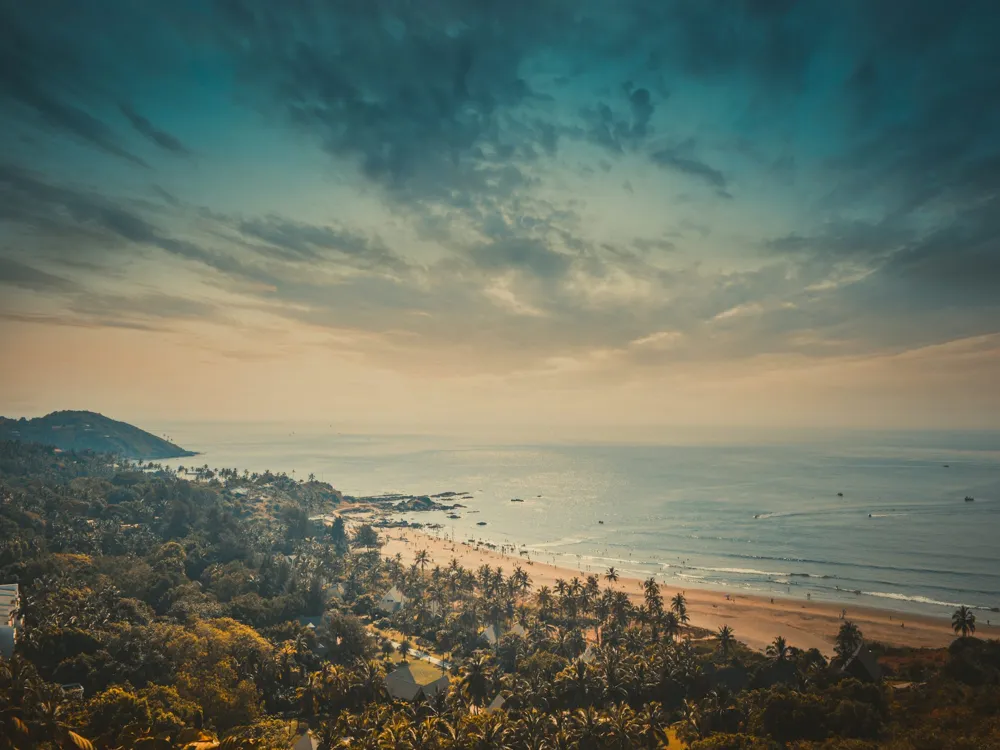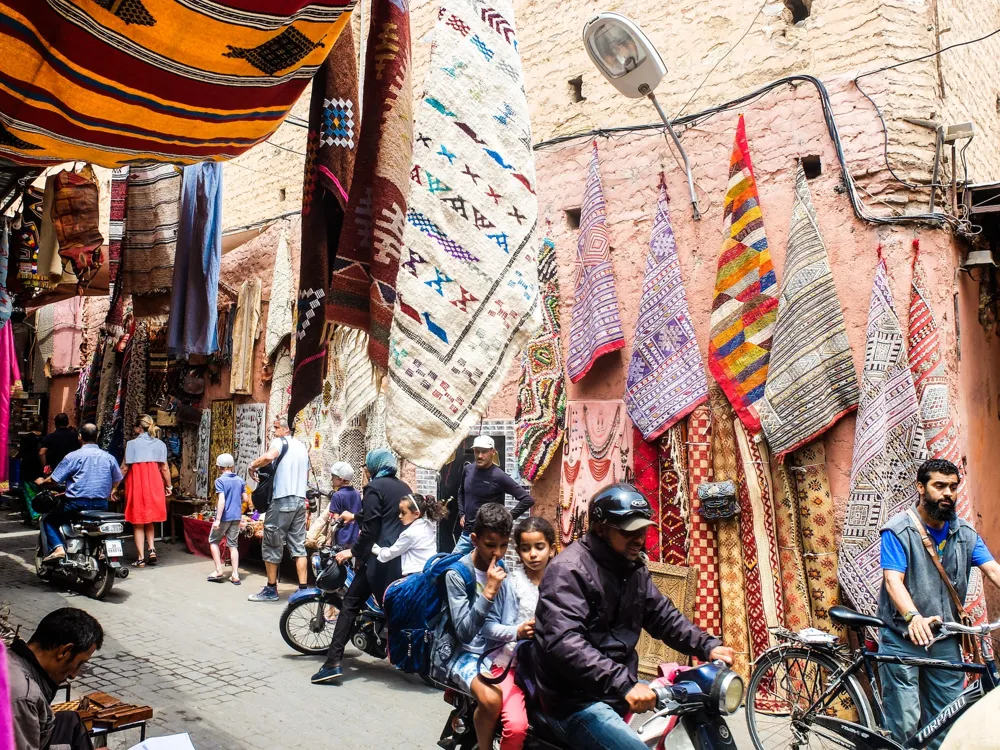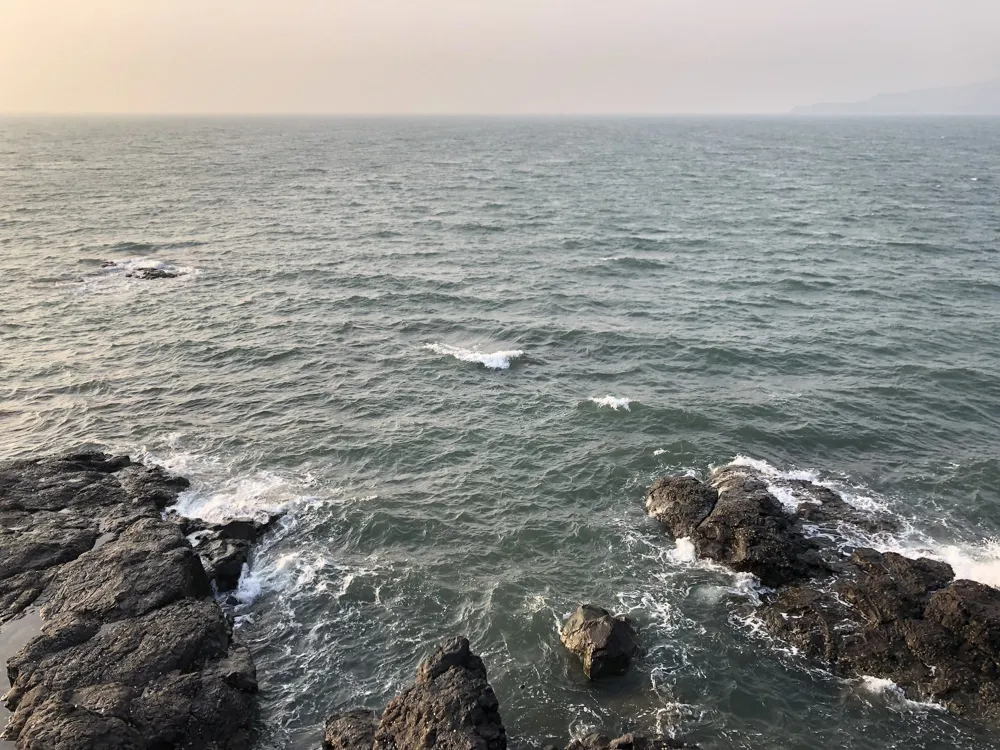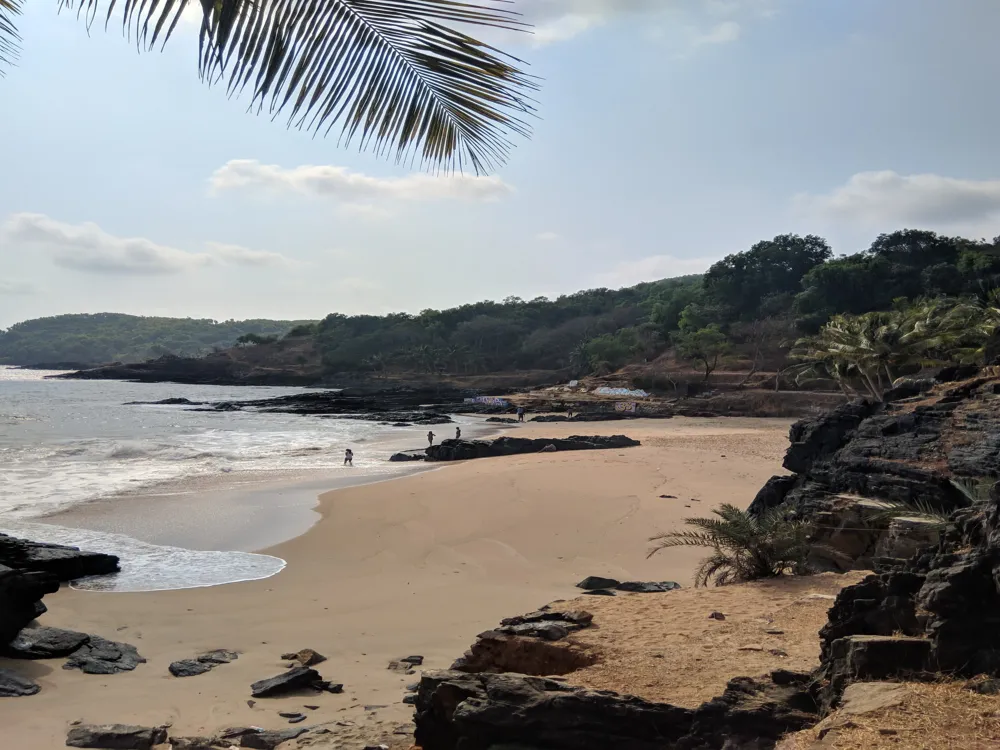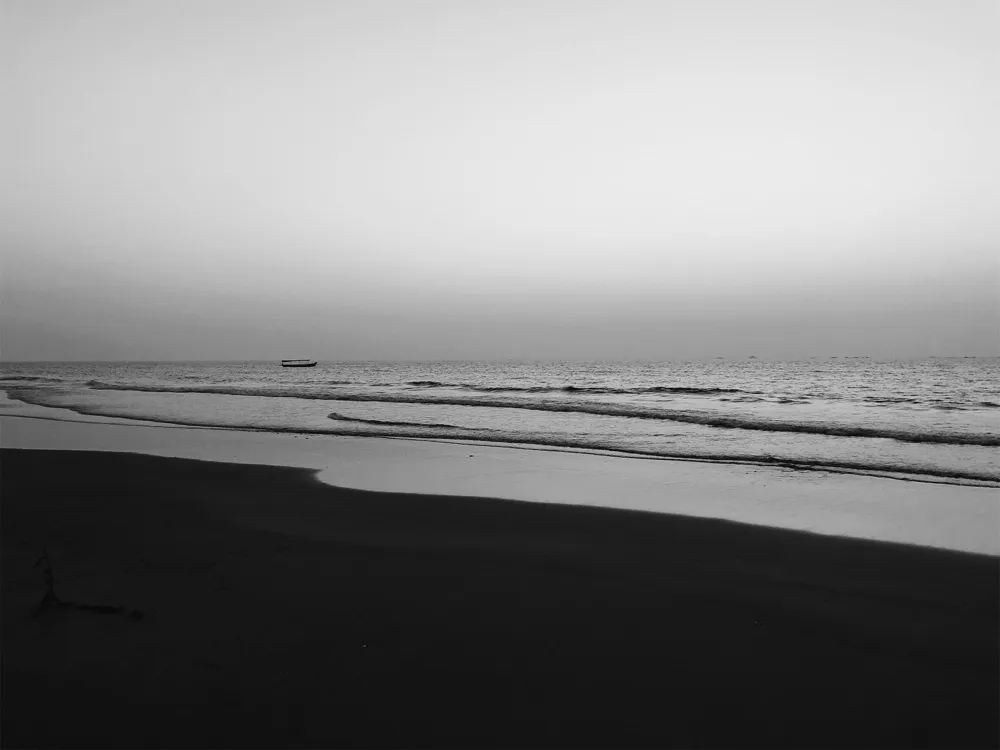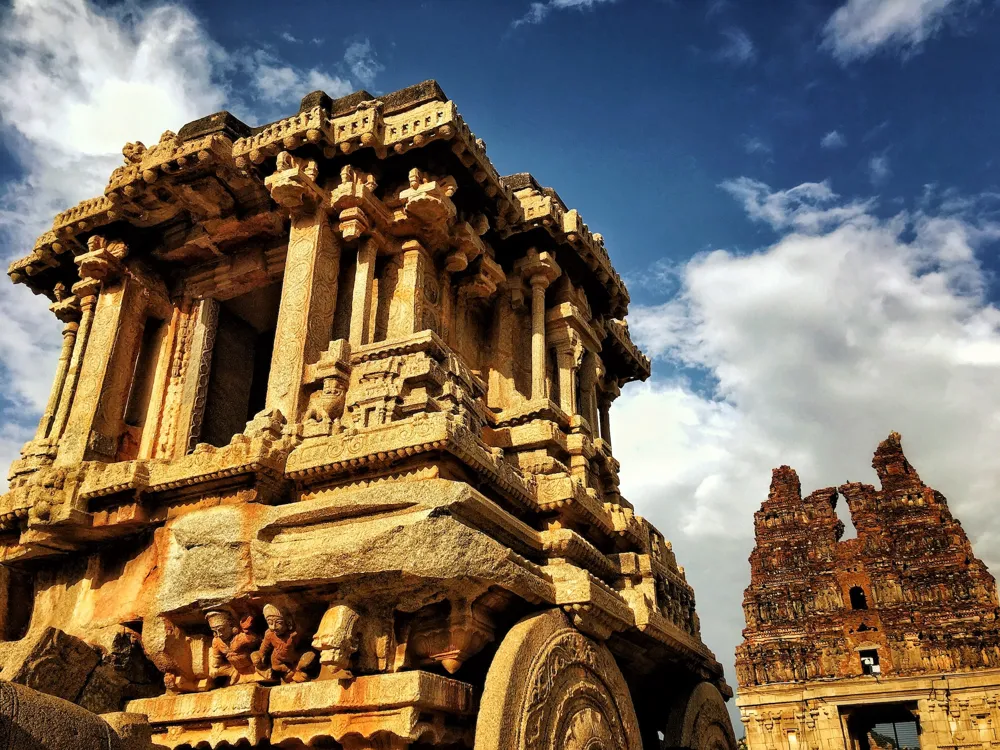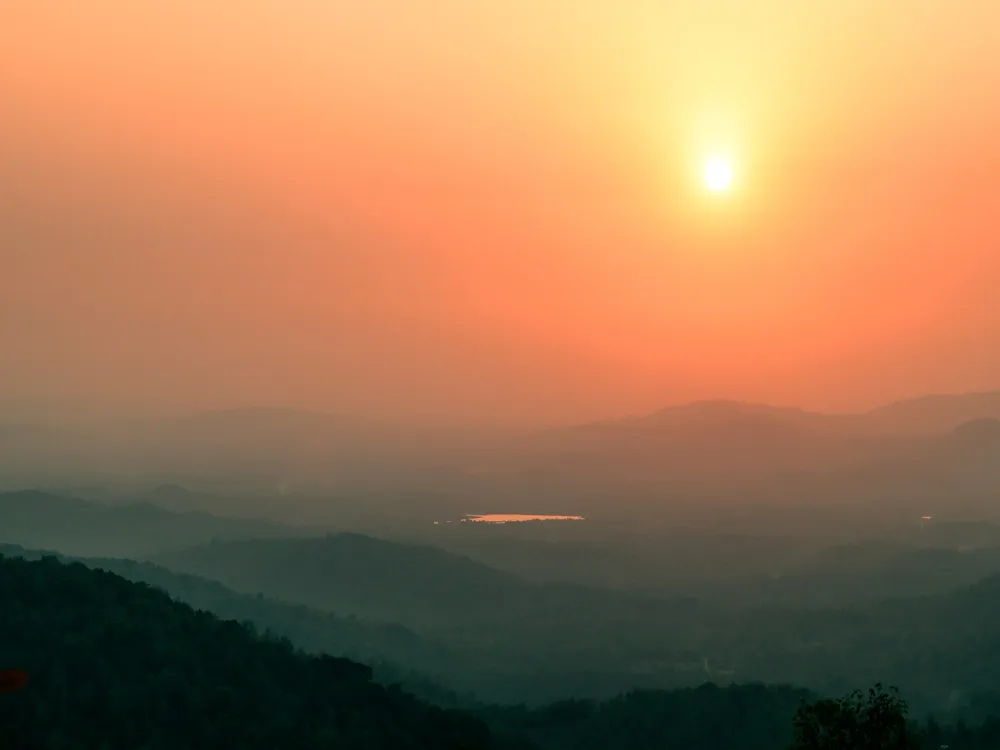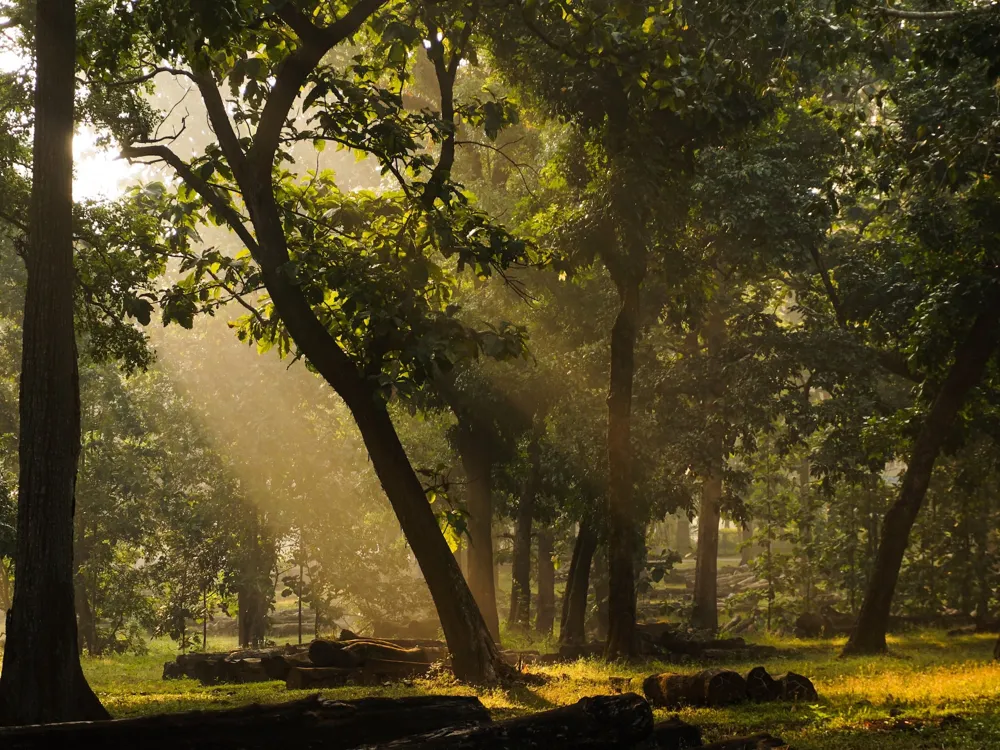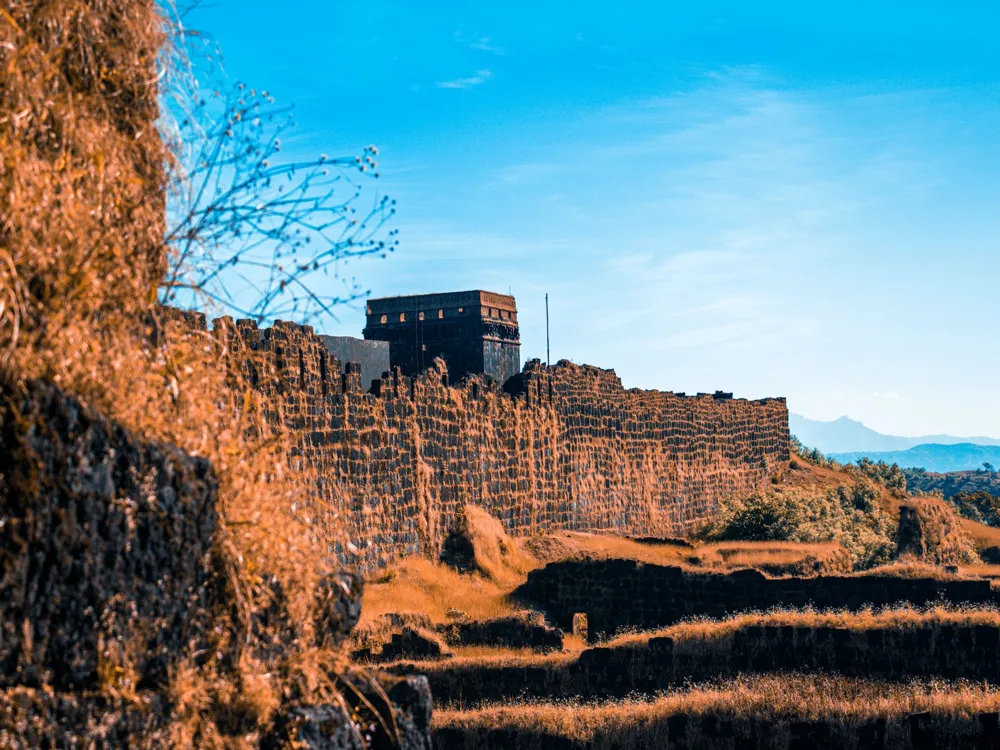Little Vagator Beach, nestled in the northern part of Goa, is a picturesque destination known for its serene ambiance and breathtaking landscapes. Often referred to as the hidden gem of Goa, this beach offers a perfect blend of natural beauty and a peaceful retreat away from the bustling city life. With its soft white sands, clear blue waters, and the iconic view of the sunset, Little Vagator Beach is a paradise for nature lovers and photographers alike. The beach is flanked by imposing cliffs and swaying palm trees, creating a perfect backdrop for a relaxing day by the sea. It's not just the natural beauty that attracts visitors; the beach is also known for its vibrant nightlife and beach parties, making it a popular spot among young travelers and party enthusiasts. The beach shacks serve delicious Goan cuisine, fresh seafood, and a variety of beverages, offering a taste of the local flavors and culture. For those who seek adventure, Little Vagator Beach provides ample opportunities for water sports like parasailing, jet skiing, and banana boat rides. The beach is also a starting point for many trekking and hiking trails, leading to some of the most scenic spots in North Goa. Moreover, its proximity to other tourist attractions like Anjuna Beach, Chapora Fort, and the famous Wednesday Flea Market adds to its appeal. This pristine beach remains relatively unexploited by commercial tourism, thus retaining its natural charm and tranquility. It's the perfect destination for those who wish to escape the hustle and bustle and immerse themselves in nature's lap. Whether you're a solo traveler, a couple, or a group of friends, Little Vagator Beach offers something for everyone, making it an unmissable part of any Goa itinerary. The architecture around Little Vagator Beach is a harmonious blend of Goan traditional styles and modern influences, reflecting the region's rich history and cultural diversity. The area is dotted with quaint Portuguese-style villas, colorful houses, and charming cottages, each telling a story of Goa's colonial past. These structures, with their red-tiled roofs, white walls, and ornate balustrades, are not just aesthetically pleasing but also designed to keep the interiors cool in the tropical climate. The beach itself is surrounded by natural architectural wonders. The cliffs overlooking the Arabian Sea are a striking feature, offering a panoramic view of the coastline. These rocky formations have been sculpted by the sea over centuries, creating unique shapes and caves that add to the beach's allure. The palm-fringed coastline further enhances the scenic beauty of the beach, providing natural shade and a tranquil environment. Another architectural highlight near Little Vagator Beach is the Chapora Fort. Perched on a hilltop, this historic fort offers breathtaking views of the Arabian Sea and the surrounding beaches. The fort's ruins are a testament to Goa's history, with its walls and bastions narrating tales of battles and conquests. The fusion of Indian and Portuguese architectural elements in the fort's design is a reflection of Goa's multicultural heritage. The local shacks and eateries along the beach also exhibit a unique architectural style. Constructed primarily from natural materials like bamboo, wood, and palm leaves, these structures are eco-friendly and blend seamlessly with the surroundings. They provide a rustic yet comfortable setting for visitors to enjoy the local cuisine and witness the stunning sunsets. In conclusion, the architecture of Little Vagator Beach is not just about buildings and structures; it's about the harmonious coexistence of man-made creations with nature's wonders. It's a place where history, culture, and natural beauty come together to create an enchanting experience for all who visit. The ideal time to visit Little Vagator Beach is between November and February. During these months, the weather is pleasant, with cooler temperatures and minimal rainfall, making it perfect for beach activities and sightseeing. Little Vagator offers a range of accommodation options, from luxury resorts to budget-friendly guesthouses. Booking in advance is recommended, especially during peak season, to secure the best deals and locations. Don’t miss out on the local Goan cuisine, especially seafood dishes like fish curry, prawn balchao, and bebinca for dessert. The beach shacks and local eateries provide authentic and delicious options. While enjoying your time at the beach, it’s important to respect the local culture and traditions. Dress modestly when away from the beach, and be mindful of the local customs. Always follow safety guidelines while indulging in water sports and swimming. Be aware of the designated swimming zones and listen to the lifeguards’ instructions. Little Vagator Beach is well-connected and easily accessible from various parts of Goa. The nearest airport is Dabolim Airport, which is about 42 kilometers away. From the airport, you can hire a taxi or rent a car to reach the beach. If you’re traveling by train, the nearest railway stations are Thivim and Madgaon, from where taxis and buses are available. For those who prefer road travel, several state-run and private buses connect major cities with Goa. Renting a bike or scooter is a popular option among tourists for exploring the beach and nearby areas. Read More: Overview of Little Vagator Beach, North Goa
Architecture of Little Vagator Beach
Tips When Visiting Little Vagator Beach
Best Time to Visit
Accommodation Choices
Local Cuisine
Respect Local Culture
Safety Precautions
How To Reach Little Vagator Beach
Little Vagator Beach
North Goa
Goa
NaN onwards
View goa Packages
Goa Travel Packages
View All Packages For Goa
Top Hotel Collections for Goa

Private Pool

Luxury Hotels

5-Star Hotels

Pet Friendly
Top Hotels Near Goa
Other Top Ranking Places In Goa
View All Places To Visit In goa
View goa Packages
Goa Travel Packages
View All Packages For Goa
Top Hotel Collections for Goa

Private Pool

Luxury Hotels

5-Star Hotels

Pet Friendly







